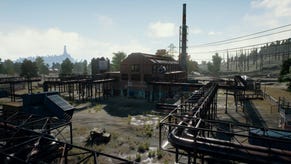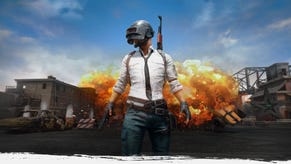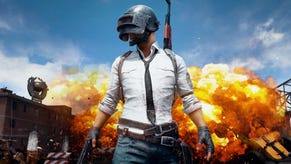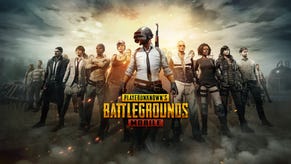The Future of PUBG: We Talk to PUBG's Creators About its Eventful First Year and the Road Ahead
We spoke with Creative Director Brendan "PlayerUnknown" Greene and PUBG Corp. CEO Chang Han Kim about where PUBG is headed this year, and beyond.
This article first appeared on USgamer, a partner publication of VG247. Some content, such as this article, has been migrated to VG247 for posterity after USgamer's closure - but it has not been edited or further vetted by the VG247 team.
A little over a year ago on March 23, 2017, a little game called PlayerUnknown's Battlegrounds was released on Steam Early Access. It had one map, a wealth of bugs, but still, it persevered. It ignited a fanbase the likes of which video games hadn't seen in quite some time, inspiring a whole genre to get off the ground and leave the confines of mods for other titles. The game, which would eventually be adoringly called PUBG in shorthand, became a force to be reckoned with.
And now PUBG is a toddler, waddling past pure infancy. The game has a new roadmap, detailing its updates for the next year. Developers PUBG Corp. are blossoming outside of South Korea, Shanghai, and Tokyo with new offices planned for Amsterdam and Santa Monica to help gain resources, expanding far beyond its small original team of around 30 people. Last week at the Game Developer's Conference, Creative Director Brendan "PlayerUnknown" Greene showed off a teaser trailer for the game's first micro, 4x4 kilometer map. The team at PUBG Corp. have even more in the works too, including an experimental test server for additional updates and maps. At the top of the list though is a heavy dose of open development, better known as being transparent about all the changes a-comin'.
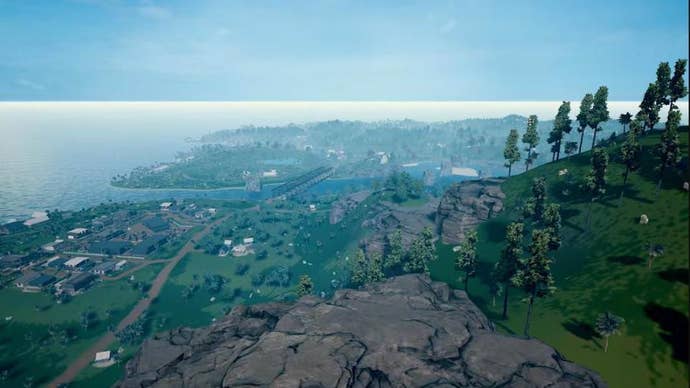
"One year ago, we launched the early access version of the game and we never thought, we never imagined that this moment would come, we just had this single goal that we wanted to launch the 1.0 version of the game within a year," says CEO Chang Han Kim of PUBG. Corp, a subsidiary of the South Korean publisher Bluehole. "That was our focus and that's all we were looking at and we didn't expect to see so much growth. And now the sales numbers are growing. We've seen exponential growth. There are more people in the office, more players, and this year we have to focus on making sure that we cater to the ever growing fan base."
I spoke with Kim and Greene (with translators assisting the interview) last week during the hustle and bustle of GDC 2018, tucked in an office far away from the chaos of where the expansive conference was centrally being held. Since then, news from PUBG Corp. has tumbled down like an avalanche. It started with Greene's teaser of the 4x4 map during his GDC talk, and marched onward with the reveal of PUBG's new limited-time event mode. The event mode debuted over the weekend with an inaugural 8-player squad mode; the mode itself goes back to Greene's roots with modded Arma modes like PlayerUnknown's Street Fight, which featured limited guns and confined players to cities. And this week, PUBG Corp. unveiled gun skins too. Kim and Greene weren't bluffing when they told me about all the updates in store for PUBG. It was just a surprise at how soon it all started trickling in, just days after our conversation.
Compared to other games flooding the now popular battle royale genre, PUBG appears to be one of the few that's turning the focus away from a pure, one-map experience. At the start of development of PUBG, Greene worried about complicating the battle royale formula he once upon a time laid the groundwork for. "I didn't want [our battle royale game] to be different, I just wanted it to be good," Greene told the crowd during his talk "From Mod Creator to Creative Director of PUBG" at GDC.
But the idea of a varied battle royale experience hails from Greene's past as a modder, from when he made survival mode mods for Arma 2 and Arma 3—both of which had a multiple selection of maps. "In Arma 2 we had four maps that were randomly chosen from," Greene tells me. "In Arma 3 as well, the team are still adding new maps to the experience because that was the whole idea of the battle royale game mode, to test players in different situations all the time. So it was a testing of players' strategic ability in the moment rather than their knowledge of a particular map or a weapon or whatever."
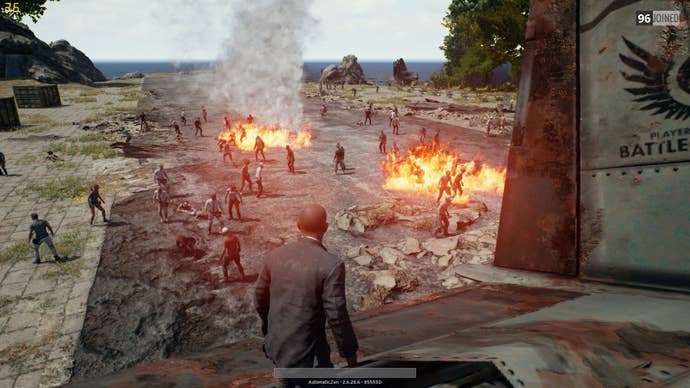
There's a key difference in PUBG Corp.'s approach to designing new maps, as Kim adds. Where Arma is a hyper realistic military simulator, PUBG isn't tied down with literally emulating real-world locations. "In Arma 2 and 3, you see cities and regions that actually exist on the planet, but we are trying to create a virtual-like island or an area that doesn't exist. But we still want to make it realistic so that it feels immersive," Kim says. "If you look at [the first map] Erangel, it is different because there are small and big towns and the height is not as dramatic as [the second map] Miramar. [...] For Miramar there are a lot of empty areas, deserts, and different terrains [for a different battle royale experience]. [...] So with the third map, we're going to approach it differently again."
The third map Kim and Greene refer to is the one that's more of a mystery to players. During E3 last year, Greene described it as a map with heavy snowfall. Earlier this year though, it was revealed that it wouldn't be the only new map joining PUBG this year. A new 4x4 map, much smaller in scope and "more intense," as Green described during his GDC talk, is sort of a bonus for PUBG fans. It's also, as they tell me, a good-natured gesture that they're actively listening to their community's desires, with rampant fan demand for a tighter, faster-paced PUBG experience to mitigate the game's pestering midgame problem.
After the controversy surrounding Miramar, and the lack of news about PUBG's growth in updates, PUBG Corp.'s biggest goal is to maintain a sense of "open development"—that is, in being transparent about any and all changes coming to the game, as well as when. "The new 4x4 is our first sort of big step in doing that, where we get the community involved for a much earlier stage. It's how we started way back in Early Access. This year we want to get back to it," says Greene. "With Miramar, we realized there were some issues with it and we tried to remedy them as best we could, but now with the 4x4 we really want to get into players' hands much much quicker and let them go because they're the guys that play on it. We can only do so many playtests ourselves internally, but the different ways people play the game is so vast and varied that you really have to get it into that sort of wider player base much earlier so they can really give us that feedback."
While Greene abstains from directly saying that the bumpiness with Miramar's launch alongside PUBG's exit out of early access directly affected any development of future maps, the team's renewed approach towards future maps and updates to the game is evident. With the experimental test server on the horizon, new maps will have an extended time in testing just as Erangel had with the game's beta and Early Access period.
"We should have eased players into [Miramar] because it's not just about showing them like a different look and feel, it's about helping them experience this new kind of battle royale gameplay," Kim says. "And the thing is, we didn't have enough time to publicly test it and ease our players into it. So what we want to do this year is that we will implement map selection features, and we want to give players the choice so that they can ease themselves into it and get used to the new map and try different play styles."
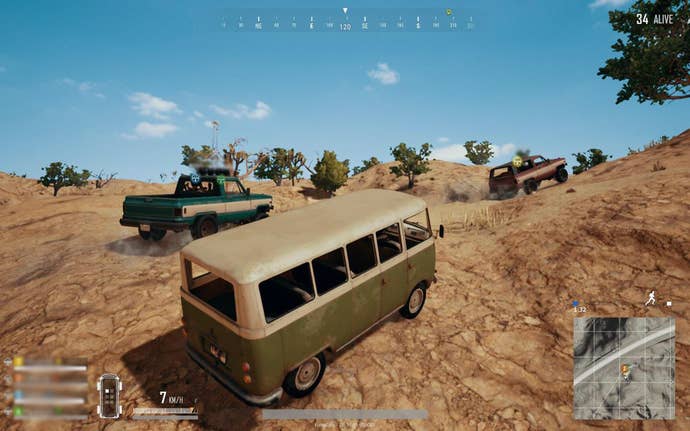
Aside from the Miramar controversy and subsequent changes to the map to add more roads and buildings, cheating's been plaguing the game. Some players, like for instance the friends I play with on a regular basis, are turning solely to first-person servers in an effort to avoid facing cheaters and being headshotted from impossible angles and distances, like glitching through walls. Greene stays away from outlining too much of PUBG Corp.'s efforts to combat cheating because it'd give cheaters "a leg up," but insists it's one of the team's top priorities. "We have anti-cheating testing internally and we're working to build systems to really get a handle on the guys that don't want to play fair," Greene says. "You know, it's an ongoing battle. It will continue long into the future, I'm sure. But I'm seeing some promising results internally and over the next few months I really hope we're going to get a better handle on it."
In a recent blog update announcing the weapon skins for PUBG, the team also outlined that they are "considering" something that sounds an awful lot like region-locking, though they have already implemented ping-based matchmaking to try and combat cheating. Last week during our interview, I asked if region-locking was being considered (as per a recent translated blog post from the Korean blog Naver), which Greene denied because of VPNs being a way around them and not a clear-cut solution.
Instead, the method PUBG Corp. is "considering" isn't quite as strict as typical region-locking. Its pitch is that it may operate servers that are invisibly region-locked, except for if a player in another region invites a player from a different region to play. In this circumstance, players can "connect to and play on any of the servers available to either of them," semi-effectively solving the big What About My Friends in Other Countries? problem that lies at the center of most region-locking debates.
There are other controversies, such as the slight dip in concurrent players on Steam during the week of PUBG mobile's release in China and Lunar New Year, that PUBG Corp. insists were overblown. "I find it funny that everyone's like 'Oh your game is dying,'" Greene says, noting that their player count stabilized again shortly after the dive. Kim adds to Greene's statement. "In Korea, we published our game on Kakao and people here just look at Steam stats and they think, 'Oh they are losing players.' [But] it's not the only platform, or PC platform, that you can play our game on. So it's not really true if you look at all the other platforms and not [just] Steam [and] PC platforms. We see a healthy number."
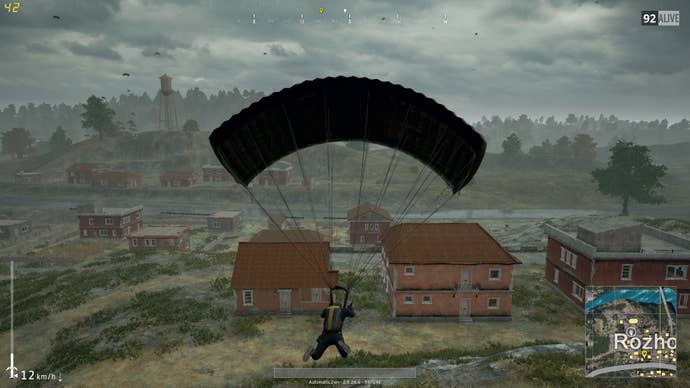
Overall, it's been a rollercoaster year for PUBG Corp. and Bluehole. (PUBG Corp. was only established as an offshoot of Bluehole officially in September 2017.) Of year one's missteps, Kim admits that there were "a lot of issues and problems we haven't addressed effectively," but listening and being more transparent with the game's audience is arguably the biggest goal for PUBG Corp. this year, and will remain for the future of PUBG's "many, many" years in development. On the topic of the future of PUBG, I ask if there's potential for the non-mobile iterations to consider a free-to-play version, similar to its mobile port that's co-developed by Tencent. While they haven't "talked" officially about it, Kim notes that they don't think they'll "approach it that way."
Otherwise, in expanding its offices globally, the goals on PUBG Corp.'s roadmap and Xbox One's Game Preview version catching up to its PC counterpart (Greene notes that there is no official ETA as to not rush development, Community Manager Sammie Kang adds that optimization for the port is chief priority at the moment) will be easier to attain with a larger team and more resources at the ready. And even with a scattered community divided across PC, Xbox One, and now mobile too, Greene and Kim are optimistic about the future of PUBG, and how its communities manage to remain united.
"We're always working on [PUBG], you know. I keep saying it's a marathon, not a sprint," Greene says. "Just speaking for the community, especially like the PUBG community, While we are on different platforms [like PC, mobile, and Xbox], there seems to be this kind of united love of PUBG, and like winning a chicken dinner, no matter what platform, is kind of celebrated. I've seen it on the PC's subreddit where someone will post their first Xbox chicken dinner and people are happy with them. There's no kind of like, 'oh I hate you because you play on [console].' It seems to be very united because we all play PUBG. We all love winning chicken dinners."
For more on PUBG, check out our review from its 1.0 launch and our guides on how to get started on its free-to-play mobile iteration.



